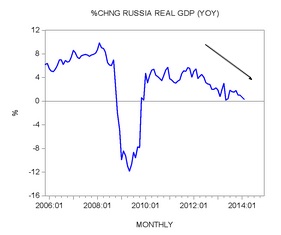‘Big Data’ and ‘Data Science’ seems to be the buzzword across industries and is, in many ways, characteristic of both the rapidly evolving present and the exciting, oncoming future that’s in store for us via data analytics and the efficiency and productivity gains (alongside massive monetisation potential) that it entails. However, data science need not be restricted merely to the commercial domain; there is potential for government policy and, more specifically (as will be explored in this article), taxation to be revolutionised during this era.
Currently, income tax (with the personal allowance and progressive rates) explicitly presumes that it is undesirable to tax those on relatively low incomes. The incidence of sales taxes such as VAT, however, indiscriminately affect everyone; it was previously extremely difficult to know consumers’ income and behaviour at the point of transaction. However, with the advent of big data and the proliferation of cashless, electronic payments, it is entirely possible to introduce selective sales taxation in the following way.
One could say that, providing consumers give consent to have data on their income, consumption patterns and so on (the more data the better), that vendors can eliminate sales tax entirely if, say, the individual has personal allowance, or offer reduced sales taxes at the point of transaction for those on higher incomes if they offer their data. Through a quick, preliminary analysis of the data, it will be clear to the vendors and tax officials alike, which consumption is done by whom with what income and, therefore, selective reduction of sales taxes can be implemented based on various factors. Of course, one might argue that we can hardly afford the government budget deficit to grow through tax reduction; however, sharing data means will open up a multitude of other avenues for increasing total sales, output and national income.
Firstly, a vendor can employ data analytics tools to track the consumption pattern and income of their consumer and this would no longer be confined purely to big business; that is, even small business owners can reap the benefits of Big Data. Based on consumers’ location, income, spending patterns and so on, these smaller vendors could begin introducing targeted special offers, discounts and loyalty schemes which had previously largely been the preserve of big businesses in terms of effective execution.
Secondly, this would enable the proliferation of boutique data analytics consultancies that would cater to this further expansion of Big Data by providing the necessary analysis through which these small businesses can exploit their newly received data. These consultancies would bring in additional, compensating tax revenue for the government.
Thirdly, the efficiency and productivity gains from having more small businesses participate in the Big Data revolution would mean that their output and profits would also increase, thereby meaning that they can expand production (leading to a corresponding aggregated increase in national income).
Fourthly, since entities on relatively lower incomes have higher marginal propensities to consume, a tax reduction for them would result in a corresponding multiplier effect and, via these network effects, an increase in national income and, therefore, tax revenue.
Finally, sharing data is far more convenient through electronic payment systems. Hence, the need for cash in transactions would further reduce and this would mean that the ‘black money’ in the ‘shadow economy’ would be constricted, easier to trace, and illicit money might re-enter regular circulation.
Ultimately, governments can afford to reduce sales taxes via utilising Big Data analytics and ensuring that tax regulations are conducive to this whilst also increasing total tax revenue, constricting illicit activities, improving profits and expanding employment opportunities across industries.
Vishal Wilde is a finalist studying for a BSc (Hons) in Philosophy, Politics & Economics (Economics major) at the University of Warwick. He wishes to spend his life fighting for and defending freedom. He is a Freelance Journalist (writing, most recently, for the Market Mogul), he writes Poetry, Science-Fiction and Fantasy and conducts independent academic research in Economics, Political Science and Philosophy. He is a Research Consultant for Fantain Sports, Pvt Ltd. (a tech startup based in India). He has previously written research articles and blogged for the Adam Smith Institute.


